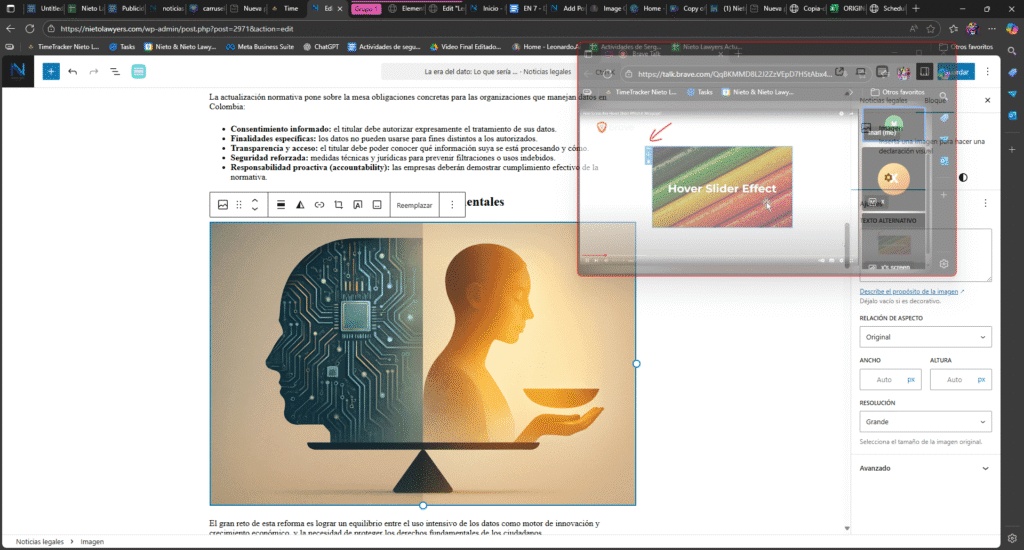
Colombia’s upcoming reform to its Personal Data Protection Law arrives at a decisive moment: the rise of data analytics across all industries.
What do sectors as diverse as healthcare, e-commerce, entertainment, finance, and technology have in common?
The answer is simple: they all rely on data.
Today, data is the strategic input that enables organizations to improve processes, anticipate trends, design new products, provide better customer service, and make informed decisions.
Data as a strategic resource

Data is not just numbers. It also includes words, images, videos, measurements, and observations. Together, they form the invisible asset that drives the global economy.
To understand its magnitude, consider this: Google processes more than 40,000 searches every second—that is 3.5 billion searches per day and 1.2 trillion per year.
This sheer volume demonstrates that data is not just a record, but an economic, cultural, and political resource of the highest order.
Why regulation is necessary: the reform of Law 1581 of 2012

In Colombia, Law 1581 of 2012 established the framework for personal data protection. However, the exponential growth of the digital environment now demands an update.
According to the National Government and the Superintendence of Industry and Commerce (SIC), the proposed reform aims to:
- Modernize the law in line with new digital environments and the data-driven economy.
- Strengthen data subjects’ rights, ensuring transparency in how information is handled.
- Adapt to emerging technologies such as artificial intelligence, big data, IoT, and the digital economy.
What companies will need to comply with under the reform

The updated law introduces concrete obligations for organizations managing data in Colombia:
- Informed consent: the data subject must expressly authorize the processing of their data.
- Specific purposes: data cannot be used for purposes other than those authorized.
- Transparency and access: data subjects must be able to know what information of theirs is being processed and how.
- Enhanced security: technical and legal measures must be in place to prevent leaks or misuse.
- Proactive accountability: companies will need to demonstrate effective compliance with the law.
Balancing innovation and fundamental rights
The greatest challenge of this reform is to strike a balance between the intensive use of data as an engine of innovation and economic growth, and the need to protect citizens’ fundamental rights.
In other words: companies will continue to harness the power of data, but within a framework of trust, transparency, and responsibility.
Conclusion

Colombia is moving toward a more modern and secure digital ecosystem. For companies, this means not only complying with the law but also transforming data protection into a competitive advantage.
At Nieto Lawyers, we support organizations across all industries in integrating technological innovation with solid legal compliance—helping them avoid sanctions and strengthen client trust.
Is your company ready for Colombia’s Data Protection Law reform? Book your consultation with Nieto Lawyers and secure compliance in the new data era.
Why does data protection matter in Colombia?
Because Law 1581 of 2012 (and its upcoming reform) guarantees that any company collecting or analyzing data respects the rights of data subjects.
What risks does my company face if it doesn’t comply?
- Economic sanctions from the SIC.
- Loss of reputation.
- Civil lawsuits for misuse of personal information.
How can Nieto Lawyers help?
We design privacy policies, contractual clauses, and compliance strategies so you can leverage data analytics without exposing your company to sanctions.
Does your company analyze data in Colombia? Get ahead of the new reform and protect your business.








